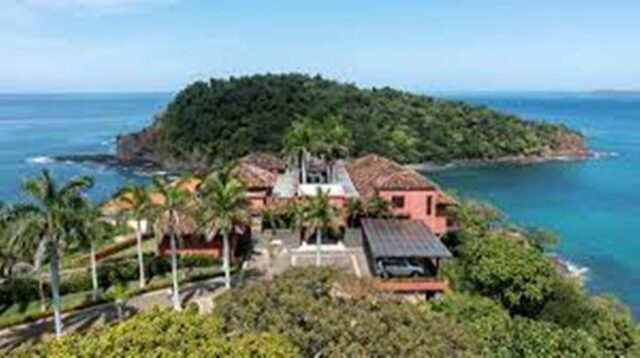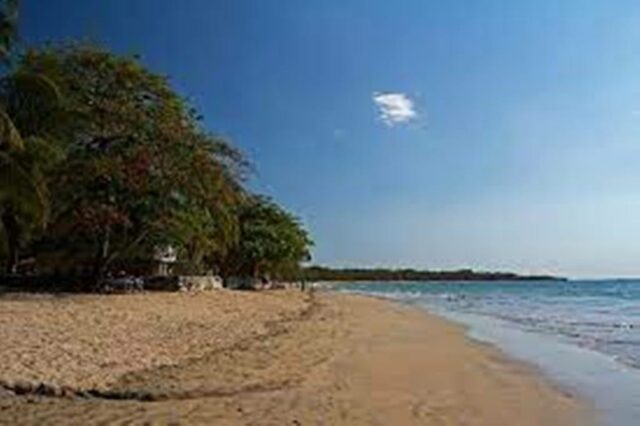It’s an area that has among the most centenarians in the world. The Costa Ricans put their longevity down to Pura Vida, a versatile phrase that can be thrown into the conversation to mean hello, goodbye, no problem or thank you, but which essentially sums up the love of life’s simple pleasures in a place where the temperature hovers around a constant 30C all year round.
Pioneering environmental awareness, and preservation, has been a cornerstone of Costa Rica’s development and particularly over the past decade. The country is now almost entirely powered by renewable sources and it aims to be the world’s first carbon-neutral country. The move helps the country achieve its goal to protect 30 percent of its forests and marine resources.

Faced with rising demand from foreign buyers (mainly from the US and Canada) seeking a new life in this eco-paradise during the pandemic, local estate agents have become well-versed in talking up Costa Rica’s green credentials.
Trouble in paradise
But Guanacaste’s rising popularity with both foreigners and city-living Costa Ricans who have been making a beeline for the country’s coast and tropical wilderness over the past two years is creating its own problems, both for its environment and for its property market.
When the borders shut during the pandemic, many young adults and families with children moved from San José to the beach. Once the borders reopened, they were joined by a huge amount of foreigners who have bought beach land and built homes for short lets. While there is no official source for property data in Costa Rica, Covid escapees” helped double property prices in six months last year. Nearly all the beaches have been developed by ex-pats, and Santa Teresa is predominantly foreigners, from all over the world. Properties that had been unsold for years sold and sold again in a property-feeding frenzy.

The tropical retreat is what people come to Costa Rica for. Although there are strict building codes in Costa Rica, and the planning process is “well organized”, there are clear breaches of the environmental rules. Many luxury hotels still pump sewage into the ocean, causing beaches to be shut due to water contamination. Slowly this is being dealt with, but there are many unsavory characters in that arena. It doesn’t help that local planning offices are ill-equipped, so there is a lot of illegal activity, such as building without planning or burning the rainforest to improve a view.
New arrivals are more problematic
The original ex-pats in Costa Rica, “the yogis and surfers,” “are greener than most.” But more recent arrivals are different. They have big cars and big air-conditioned houses. Locals are seeing no public spending on infrastructure, and have begun to complain. More often than not, new buyers are stripping plots of all their trees to clear spaces for their homes, and there are issues with the destruction of wildlife habitats, especially monkeys.
One way in which the local authorities are trying to curb development is by withholding water permits. Water shortages and water rationing are common in Guanacaste, and you can only get a building permit if you have an authorized source of water. If you need to drill a well on your property, it can take up to four years to get the green light to build.
While they are waiting to build or find the right property, many foreigners in the likes of Nosara and Santa Teresa are taking long-term rentals, and it’s becoming a problem for locals. These areas are becoming a bubble and it’s not sustainable at all for nationals or locals. In some areas, including Santa Teresa, there is rising tension between locals and “some divided communities of foreigners who don’t integrate well.
Reconsidering their options
Rising rental prices are even causing some recent immigrants to reconsider their moves. Costa Rica may be famed as an eco-paradise. But with the surge in demand from foreign buyers and developers, some are worried about how sustainable it all is.
Brief buying guide for foreigners
- Foreigners have the same rights and obligations as Costa Ricans when buying property, but watch out for water access in beach areas and the subtleties of concession rights when buying within 200 metres of the beach.
- It’s advisable to use a SUGEF-registered agent (SUGEF is how Costa Rica regulates industries that hold significant monies of third parties, including escrow and real estate companies).
- Few Costa Rican banks will loan to non-Costa Rican residents, so you either need to be an entirely cash buyer or secure financing in your country of origin and use cash for the purchase.
- Buying costs are 4.38 to 7.38 per cent, including an estate agent’s fee of 2.5 to 5 per cent.
